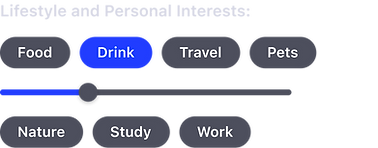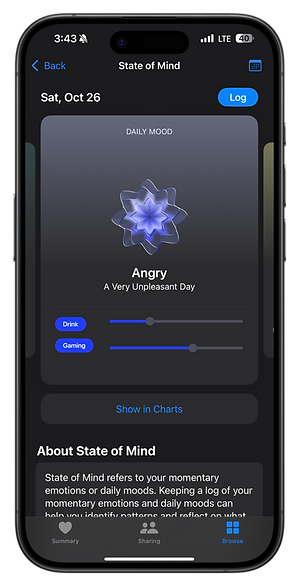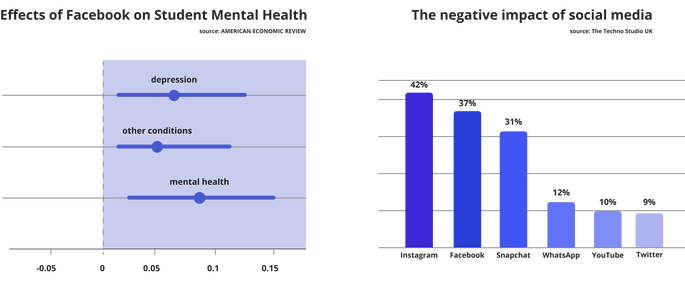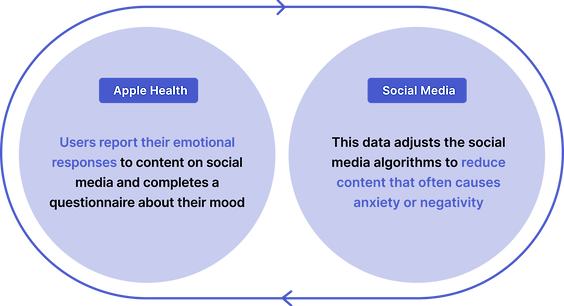
Role
Researcher
Timeline
Mar - May 2024
Team
Personal 100%
Advisor
Lucas Drummond
Skills
User Research
Stroy-telling
Tools
Figma
Illustrator
Photoshop
Apple Health Reimagining Wellness, Now Tracking How You Feel
"Happy National Boyfriend Day!" Meanwhile, I’m staring at my phone, wishing I could replace these boyfriend posts with travel videos to lift my mood and get excited for something else.
Every time I opened social media, I’d spiral into a loop of comparison such as friends’ promotions, engagements, milestones, each post adding to a growing sense of stress and self-doubt. What was meant to connect became a constant reminder of what I hadn’t achieved.

Core Experience Overview
Designed to enhance your well-being and create a healthier, more personal relationship with social media

1. Swap FOMO for Content You Love
Sick of seeing friends' drinking parties you weren't invited to? Adjust the 'Impact Slider' to dial down the FOMO and bring in more gaming content instead.


2. Feeling Lazy? Let Pop-Up Questions Fine-Tune Your Feed
After you've spent some time on social media, quick pop-ups will ask if you enjoyed a video and how much you'd like to see similar content, refining your feed to match your tastes. If it's not your thing, you can turn it off or set it to appear at your preferred time.


3. Weekly Mood Snapshot
View your daily mood shifts alongside the content that impacted you, all in one glance with our weekly overview cards, helping you understand both your emotions and algorithm choices at once.

Design Process
This project is a personal initiative in which I meticulously followed a structured process to ensure its success under the guidance of Professor Rachel.

Problem Framing
Social media shapes our daily lives, but too much screen time can blur the line between connection and overwhelm.
As social media continues to shape how we communicate, share, and stay informed, finding balance becomes essential. While these platforms keep us connected, too much screen time can lead to stress, comparison, and distraction. Navigating this digital space with intention can help us harness its benefits while protecting our well-being.

After using Facebook, students started experiencing depression, other conditions, and mental health issues.
Majority of the people found social media having negative impact, especially Instagram, Facebook, and snapchat.
Research
How do other platforms approach user engagement and content moderation?
In my secondary research, I analyzed platforms like Instagram, TikTok, Facebook, Tinder, and YouTube to understand user engagement and moderation features. I focused on effective personalization, content delivery, and moderation options, from restricting harmful content to milder adjustments like 'Snooze' and 'Not Interested,' to explore current efforts aimed at fostering a more balanced social media experience.

Insights from User Research: Social Media’s Double-Edged Impact
After 5 interviews and 35 survey responses, I combined insights from competitor analysis, interviews, and a diary study to create an affinity diagram. This revealed that social media distracts users, triggers comparison and FOMO, yet also entertains and connects them.

The research revealed that idealized content harms self-esteem, social media distracts from productivity, and its entertainment value often impacts mental health and sleep, leading me to develop personas that embody these key challenges and user goals.

Considering the challenges faced by individuals engaging with social media everyday,
How might we help social media users engage meaningfully while avoiding distractions, reducing negative emotions like FOMO and self-comparison, and curating content to support their digital well-being?
Ideation
Brainstorming design ideas:
After synthesizing the research and understanding user needs and goals, I brainstormed ideas and decided to focus on giving users control over an algorithm filter. Recently with AI integration, platforms like Meta have seen increased user engagement and retention, highlighting the significant impact that an adjustable algorithm could have on user experience.

Final design concept:
I decided to create a feature that allows users to control the algorithm filter, giving them the ability to personalize content to match their interests, set boundaries to reduce distractions, and balance their feed with enjoyable content.

This diagram outlines the framework for how the app would function:

This storyboard illustrates the user journey while interacting with the app:

Final Design

Reflection
Research Guide and Need Statement Significance:
-
While conducting my research, I occasionally lost focus on my objectives and findings; However, having a solid research guide and clear need statements helped me keep on track to my research goals.
Embracing Innovative Solutions:
-
With the rapid advancement of technology, the realm of possibility has expanded and I found that it is important to stay open to integrating various technologies like AI, VR, XR, and more for creative solutions.
More targeted Competitor Analysis:
-
Reflecting on the competitor analysis conducted during the research phase, it becomes evident that the focus on block, mute, and hide features within competitor apps may not have been the most relevant or impactful aspect to examine. Exploring a broader analysis might have provided more valuable insights into user behavior and preferences, which could have been more directly applicable to the development of our solution.
